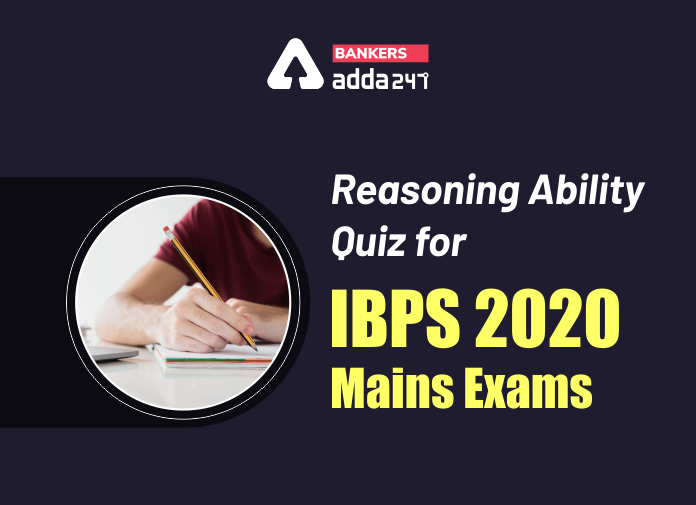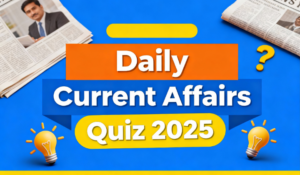Directions (1-5): Study the following information carefully and answer the questions given below:
Ten friends i.e. Z, K, F, V, G, S, P, C, D and B have seated in two parallel rows. B, D, C, S and P have seated in row 1 and faces towards South. In row 2, V, Z, G, F and K have seated and faces North. They like different colors i.e. Blue, Magenta, Black, white, Green, Yellow, Pink, Red, Violet and Grey but not in same order.
P sits immediate left of the one who likes Black. The one who likes Red faces the one who sits 2nd right of D who does not like Blue. B faces the one who likes White. The immediate neighbor of D faces the one who likes Yellow. There are two friends sit between C and the one who faces the one who likes Red. Z does not like White and Grey colors, and sits 2nd left of F. Two friends sit between the one who likes Yellow and K. F does not sit opposite of C. P does not like Blue and Green. The one who likes Black sits near to the one who faces the one who is immediate left of F. K does not face the one who likes Black. The one who likes Pink sits opposite to the one who sits immediate right of V. There are two friends sit between the one who likes Grey and Violet colors. V is immediate left of G.
Q1. Who among the following likes Blue colors?
(a) P
(b) B
(c) F
(d) V
(e) G
Q2. How many friends sit between the one who likes Green and the one who faces the one who likes Red?
(a) One
(b) Two
(c) Three
(d) Four
(e) None of these
Q3. Who among the following sits 3rd left of the one who likes Grey?
(a) S
(b) F
(c) K
(d)Z
(e) D
Q4. Who among the following sits immediate left of the one who faces Yellow?
(a) Z
(b) S
(c) D
(d) F
(e) None of these
Q5. How many friends sit left to the one who is immediate neighbor of the one who likes White color?
(a) One
(b) Two
(c) Three
(d) Four
(e) Can’t be determine
Directions (6-10): Study the following information carefully to answer the given questions:
A number arrangement machine when given an input line of numbers rearranges them following a particular rule. The following is an illustration of input and rearrangement.
INPUT— 6531 8234 2813 9812 7823 2312
STEP I- 1356 2348 1238 1289 2378 1223
STEP II- 1223 1238 1289 1356 2348 2378
STEP III- 22 23 28 35 34 37
STEP IV- 4 5 10 8 7 10
Step IV is the last step of the rearrangement. As per the rules followed in the above steps, find out in each of the following questions the appropriate steps for the given input.
Input: 2538 5628 8516 7524 6325 2645
Q6. What will the addition of the numbers which is second, fourth and sixth from the left end in step IV?
(a) 32
(b) 28
(c) 38
(d) 40
(e) None of these
Q7. Which of the following would be the difference of the numbers which is 2nd from left end in step I and forth from right end in Step II?
(a) 113
(b) 128
(c) 113
(d) 212
(e) None of these
Q8. Which of the following element will be 3rd to the left of 6th from the left end in step III?
(a) 34
(b) 37
(c) 25
(d) 35
(e) None of these
Q9. What will the addition of the numbers which is second, fourth and sixth from the right end in step III?
(a) 132
(b) 128
(c) 136
(d) 140
(e) None of these
Q10. Which of the following is the product of all the digits of the number which is 3rd number from the left end in step I?
(a) 240
(b) 315
(c) 235
(d) 189
(e) None of these
Directions (11-15): In the following questions, the symbols #, &, @, $ and £ are used with the following meanings as illustrated below. Study the following information and answer the given questions:
Note: The directions which are given indicates exact directions.
P#Q – P is in the south direction of Q.
P@Q – P is in the north direction of Q.
P&Q – P is in the east direction of Q.
P$Q – P is in the west direction of Q.
P£QS – P is the mid-point of QS.
Note- For southeast direction it used to be written as P#&Q and so on…
When it is given that the Car honks once then it will be considered as the car taken a left turn and if it is given as the car honks twice then it will be considered as the car takes a right turn.
Point G is #5m of point B. Point T is &20m of point G. Point T is @14m of point V. Point C is $20m of point V. Point Q is @7m of point C. Point F is &10m of point Q. Point U£GT.
Q11. What distance the car has to travel from point F to reach the airplane which is parked at point U?
(a) 12m
(b) 7 m
(c) 4 m
(d) 20m
(e) 5m
Q12. What could be the possible shortest route to reach point T from point F?
(a) Started in east till 10m, honks twice, cover 7m
(b)Started in west till 10m, honks twice, cover 7m, honks twice and cover 20m
(c) Started in south till 7m, honks once, cover 10m, honks once and cover 14m
(d) Started in north till 5m, honks twice, cover 10m, honks twice and cover 2m
(e) Started in east till 10m, honks once, cover 7m
Q13. Point B is in which direction from point V?
(a) #
(b) @$
(c) #$
(d) @&
(e) #&
Q14. If Point K is #7m of point T then which of the following is the position of K with respect to F?
(a) @, 24m
(b) &, 10 m
(c) #, 15 m
(d) $, 10m
(e) None of these
Q15. Point C is in which direction from point G?
(a) #
(b) @
(c) $
(d) &
(e) #&
Practice More Questions of Reasoning for Competitive Exams:
Solutions

Solutions (6-10):
Sol.
In the given Input-Output question the logic is—
For step I- All the digits of the given numbers are arranged in ascending order within the numbers.
For Step II- All the numbers obtained in step I are arranged in ascending order from the left end.
For Step III- First and last digits of the numbers are omitted.
For step IV- The digits of the numbers obtained in step III are added.
INPUT—2538 5628 8516 7524 6325 2645
STEP I- 2358 2568 1568 2457 2356 2456
STEP II- 1568 2356 2358 2456 2457 2568
STEP III- 56 35 35 45 45 56
STEP IV- 11 8 8 9 9 11
S6. Ans. (b)
S7. Ans. (e)
S8. Ans. (d)
S9. Ans (c)
S10. Ans (a)

Practice with Crash Course and Online Test Series for IBPS Mains 2020:
- IBPS RRB PO and Clerk Prime 2020-21 Online Test Series
- IBPS PO Online test series (Prelims + Mains) 2020 by Adda247
- IBPS KA MAHAPACK Online Live Classes
Click Here to Register for Bank Exams 2020 Preparation Material




 Profit, Loss & Discount – Concept + ...
Profit, Loss & Discount – Concept + ...
 Nainital Bank Recruitment 2025-26 Notifi...
Nainital Bank Recruitment 2025-26 Notifi...
 Daily Current Affairs Quiz 13 December 2...
Daily Current Affairs Quiz 13 December 2...








